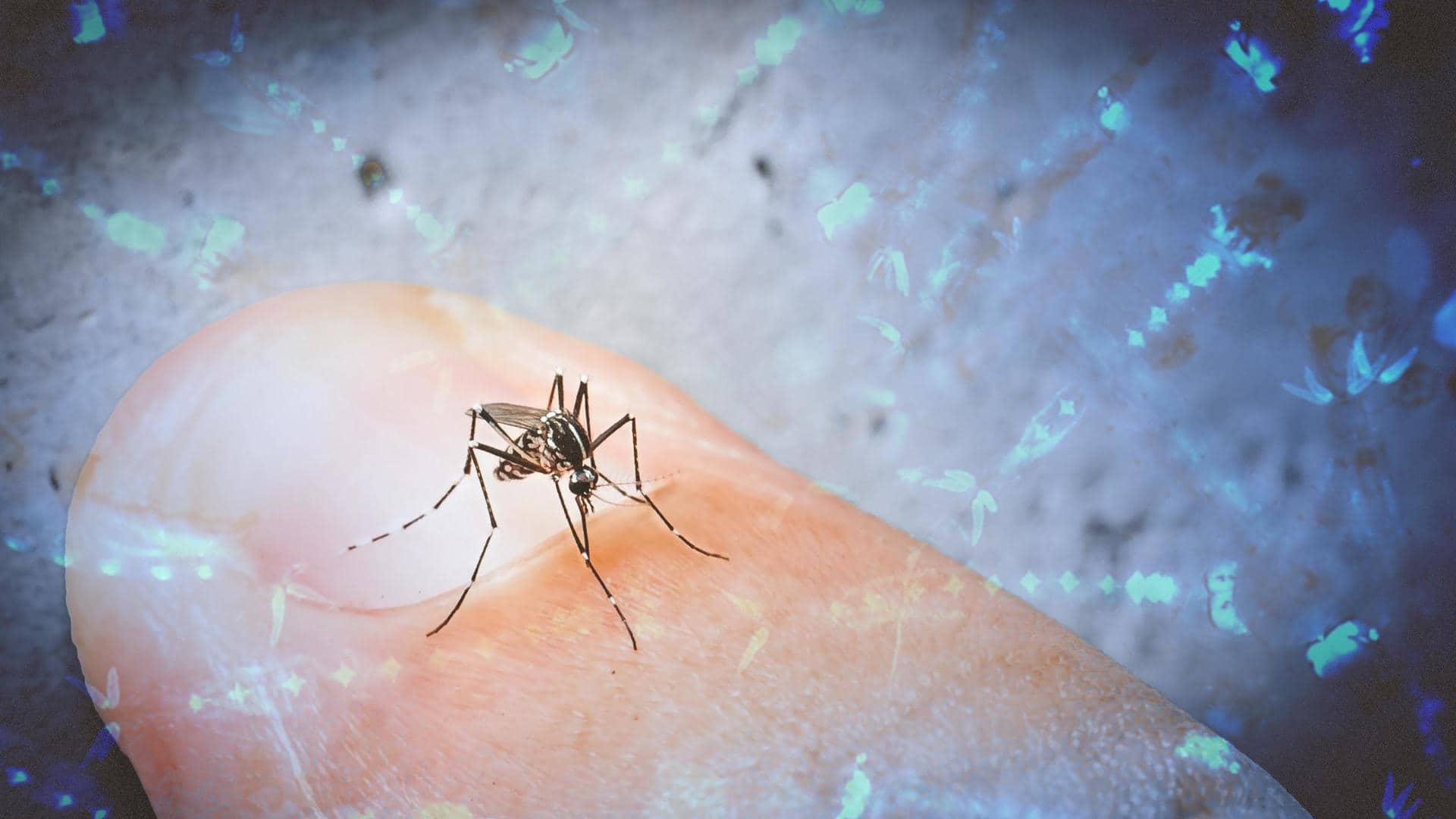
Genetically engineered mosquitoes can eradicate malaria, here's how
What's the story
Since time immemorial, communities all over the world have been struggling against the relentless impact of malaria. This mosquito-borne disease has killed countless people generation after generation. But now there is a flicker of hope due to the hard work of scientists at the Imperial College, London. They have achieved a significant breakthrough by genetically modifying mosquitoes to help eradicate malaria.
Gene modification
Malaria spreads through parasites living in Anopheles mosquitoes
Malaria is a disease caused by parasites called Plasmodium, which are passed on to people by Anopheles mosquitoes. Scientists believe that modifying the genes of these mosquitoes could be a key solution. Researchers worldwide are investigating ways to permanently alter their DNA. This could make them less suitable hosts for the Plasmodium parasites or hinder their ability to reproduce.
Delaying development
Scientists aimed at delaying the development of these parasites
The parasite grows inside the mosquito's gut and then moves to its salivary glands, where it can infect the next person the mosquito bites. However, most mosquitoes don't live long enough for the parasite to become infectious. Scientists at the Imperial College aimed at delaying the time further by slowing down the parasite's development in the mosquito's gut.
Antimicrobial peptides
Substances that hinder the growth of parasites inside mosquitoes
When these genetically-engineered mosquitoes feed on blood, they create two molecules called antimicrobial peptides in their guts. These molecules slow down the growth of the malaria parasite. As a result, there is a delay of a few days before the next stage of the parasite can reach the mosquito's saliva glands. By that time, most mosquitoes in nature are expected to die naturally.
Challenge
But, there's a challenge
To spread this genetic modification, it needs to reach the wild mosquitoes. Lab-bred mosquitoes can pass on the modification when they mate with wild mosquitoes. But there's a challenge - the modification makes the mosquitoes weaker, which is bad for their survival. In nature, the modification would disappear because those mosquitoes wouldn't live long enough to pass it on to their babies.
Gene drive
Now, enters a concept called gene drive
Scientists have another trick called "gene drive" to help the modified genes spread in mosquitoes. It makes sure that the anti-parasite genes are passed on to more mosquitoes in a population. But because this is a new strategy, scientists need to be very careful and plan everything well before they try it out in the real world.
Information
What is gene drive?
Gene drive is when a special gene has a better chance of being passed on to the next generation, resulting in the gene becoming more prevalent in the population over successive generations. Thus, the gene is being "driven" to become increasingly common in the population.
Next step
Next step is to test this experiment on real parasites
Dr. Nikolai Windbichler, the co-lead author from Imperial's Life Sciences department, mentioned that the next step is to test if this modification can prevent malaria transmission using parasites that have infected humans, not just the lab-bred ones. "If this proves to be true, then we will be ready to take this to field trials within the next two to three years," said Dr Windbichler.